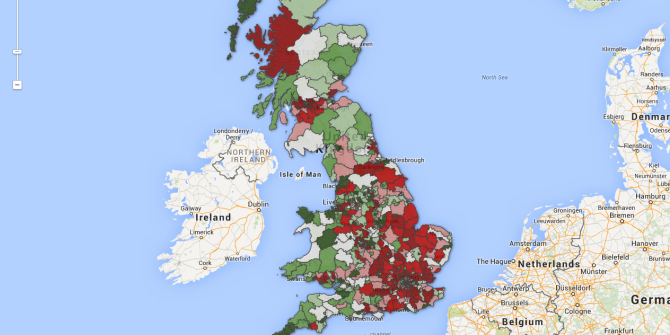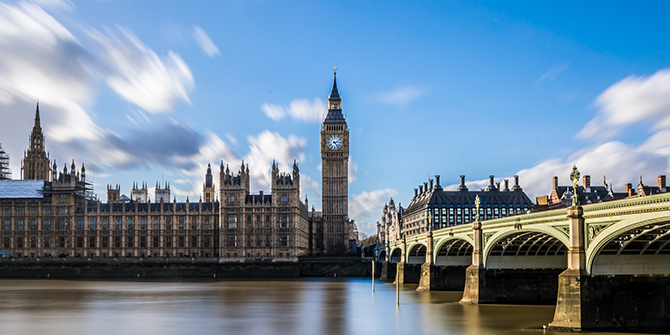Would it be a wild, politically motivated jibe to call these the Osborne/Cameron floods? Of course it is nonsense to suggest that there would have been no floods over the last five years under a different government, but Simon Wren-Lewis argues that it is equally nonsense to deny that Osborne/Cameron policies have significantly increased the damage and human misery caused by these floods. Here, he outlines eight reasons why politics has turned the floods into a crisis.
After the 2013/14 floods I wondered if they would be Cameron’s and Osborne’s Katrina. That was a mistake. For all its faults, and Fox News, the US has a more open media than the UK, particularly when the BBC is cowed by government threats. When it comes to the current floods, the Guardian, Independent and Mirror will complain (and the Morning Star will channel my blog!), but the large majority that never read these papers will remain ignorant of what has gone on. A chaotic Labour Party has been unable to coordinate any attack, and fail to effectively voice justifiable rage, and that gives the BBC an excuse to ignore them.
When we look at the floods, their causes and the response, we need to consider the following:
- We have known since at least the Pitt review of 2007 that climate change was going to greatly increase the incidence of record-breaking bursts of rainfall in the UK. Government ministers can carry on claiming they are unprecedented, but they are not unexpected.
- The Labour government responded by greatly increasing their spending on flood defences, in the spending review which ended in 2010/11. In contrast Osborne demanded and obtained sharp cuts in 2011/12 and beyond. Only the arrival of floods dragged those numbers up in later years. Ministers can play around with dates as much as they like to try and tell a different story, but the evidence for those cuts is there in the data. Every news report that allows ministers to claim they did not cut spending on flood defences is complicit in deception.
- The number of specific schemes cut or downsized in areas that were subsequently flooded becomes longer with every new event, as it was bound to do: Damian Carrington in the Guardian notes a £58 million scheme in Leeds cut, extra flood defences in recently flooded Kendal repeatedly postponed, schemes cut in the Somerset Levels and Yalding in Kent before the floods of 2013/14, before that Dawlish and the Thames Valley.
- And for what purpose? The argument that spending had to be tight is utter nonsense. There is absolutely no evidence that if flood defence spending had been increased rather than cut by 27 per cent in 2011/12 (as it should have been), and that higher spending maintained, the market would have stopped buying UK government debt. The UK recently sold oversubscribed 50 year debt at only 2.5 per cent interest: with a 2 per cent inflation target that is a real cost of only 0.5 per cent a year. By contrast the National Audit Office in 2014 reported that the Environment Agency estimated current schemes had a benefit cost ratio of over 9:1. You have to be slightly mad to cut schemes like that when they would cost you so little to finance.
- David (‘greenest government ever’) Cameron in 2013 appointed Owen Paterson, a climate sceptic, to be minister in charge of DEFRA, the ministry responsible for the environment and flood defences. He cut the number of officials working on a climate change adaptation programme from 38 to six. A rather sinister aspect to this whole affair is the influence of widespread climate denial on the right might have had on all these bad and costly decisions.
- As it became clear how many farming practices can worsen flooding, the Labour government introduced regulations on land use with the specific aim of reducing flood damage. The coalition government scrapped these regulations.
- In November this year, as part of Osborne’s spending review, local authority spending on flood defences was cut by a third. The Environment Agency has to cut staff as fast as the flood risk increases, and then through gritted teeth deny this matters. This report says the Environment Agency had 800 fewer flood risk management staff in March 2014 than in September 2010.
- The independent, government established Committee on Climate Change has issued repeated warnings to government that spending needed to be increased, not decreased. They have all been ignored.
But forget austerity and partisan politics. This is fundamentally about incompetence: about ignoring repeated warnings for no good reason and causing huge costs and heartache as a result. Is no one on the Right prepared to call the government to account for its failures on this issue? Will no one at the BBC confront politicians with what they have done? If they do not, I fear all we will get are fine words, one-off emergency cash, and the existing policy of effectively ignoring the threat will continue once again.
As Carrington says, Cameron and Osborne have ignored red flag after red flag. Cuts that make no sense in economic terms have been made with costs that probably now run in the order of a billion and counting, with plenty of human misery attached. Cameron has calculated that an appearance in wellies at each flood sight will be enough to assuage public concern. As Steve Richards notes, after each crisis when no cost is too great, Osborne goes back to playing the responsible one as he cuts regardless.
__
Please note: this article was originally published on Simon’s personal blog and is reposted here with kind permission. This article gives the views of the author, and not the position of the British Politics and Policy blog, nor of the London School of Economics. Please read our comments policy before posting.
___
About the Author
Simo Wren-Lewis is Professor of Economic Policy at the Blavatnik School of Government, Oxford University, and a fellow of Merton College. He blogs at mainly macro and is on twitter @sjwrenlewis.
(Featured image: Richard Scott CC BY-NC 2.0)









It’s hardly surprising. Neoliberalism relies on a narrative of state incompetence, and of a rejection of or disdain for the very concept of public goods. Maintaining that incompetence simply justifies more outsourcing and privatisation.